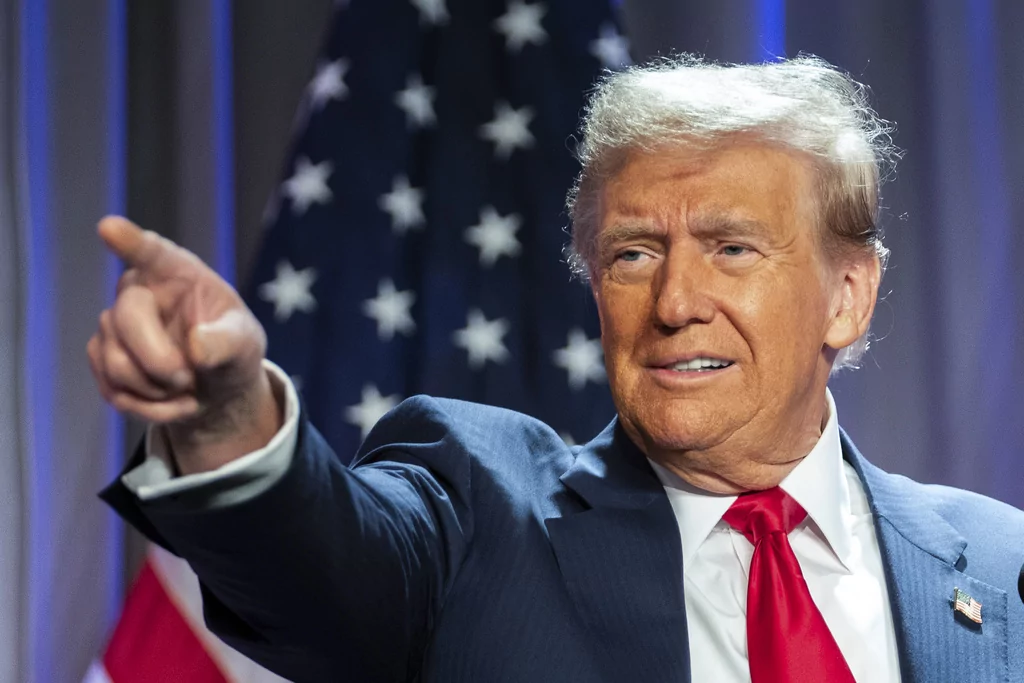

President-elect Donald Trump is counting on a handful of loyal allies who leaped to his side during his 2019 impeachment trial to overhaul Washington, D.C.’s biggest federal bureaucracies.
He has nominated four House Republicans who were on his 2019 impeachment defense team to head critical agencies over the past week. Trump selected Rep. Elise Stefanik (R-NY) to be the ambassador to the United Nations, former Rep. Lee Zeldin to oversee the Environmental Protection Agency, former Rep. John Ratcliffe to lead the CIA, and former Rep. Doug Collins to head the Department of Veterans Affairs.
Here’s a look into each of Trump’s new nominees, tied together due to their common defense of the former president during one of his most vulnerable periods.
The New York congresswoman accepted Trump’s offer to lead the U.S. delegation to the U.N. on Monday. The powerful House Republican Conference chairwoman is perhaps best known for her role in pressuring Harvard President Claudine Gay to resign her post last summer.
During a line of questioning at the House Committee on Education and the Workforce Committee hearing that went viral last year, Stefanik, who is a Harvard graduate herself, pressed Gay on allegations that antisemitism was being allowed to run rampant at the Ivy League school. She later took credit for Gay’s subsequent resignation, saying “I will always deliver results.”
But the feisty New Yorker also has a history with Trump that dates back to his first impeachment trial in the lower chamber. The 2019 House impeachment surrounded a phone call Trump made to Ukrainian President Volodymyr Zelensky, which House Democrats alleged pressured the Eastern European leader to investigate President Joe Biden and his family for corruption. The Senate cleared Trump of the charges in the spring of 2020.
Stefanik served on Trump’s ceremonial defense team throughout the trial, mounting spirited challenges to then Rep. Adam Schiff (D-CA), who led the Democratic opposition to Trump on the House Intelligence Committee.
Her tough stance earned her glowing praise from Trump at the time, with him singling Stefanik out as a “new Republican Star.”
Trump tapped Zeldin, another New York Republican, to head the EPA the same day he nominated Stefanik as U.N. ambassador.
Zeldin has made headlines for pushing the limits throughout his career, first as a lawyer, and then in the political world. When he was sworn into the New York State Bar at just 23 years old, Zeldin became the youngest attorney in the state. After he represented eastern Long Island in New York’s 1st Congressional District from 2015 to 2023, Zeldin upset norms again during his gubernatorial bid in the state. During his 2022 campaign, which ultimately failed, Zeldin received more votes than any Republican statewide in over half a century.
But before he caught the country’s eye during his bid to become New York governor, Zeldin gained prominence in the House for defending Trump during his first impeachment proceedings.
“For me, it’s just about getting facts out there and getting the rest of the story out there. Adam Schiff isn’t going to do that for my constituents,” Zeldin told NBC News during a November 2019 interview. “And I have a lot of constituents who oppose this impeachment inquiry. Most of the calls my office receives are from people who are opposed to this impeachment inquiry. This isn’t an issue, obviously, that’s going to unite a country.”
An analysis of the seven impeachment deposition transcripts released at the time showed that Zeldin spoke more than any other Republican, per the network.
His defense caught Trump’s attention. The former president promoted Zeldin nearly two dozen times on X during the impeachment trial, whereas he had previously posted about the New York lawmaker only once on the platform.
Trump nominated former Ratcliffe as his nominee for CIA director on Tuesday. The ex-Texas lawmaker had previously served as Trump‘s director of national intelligence from 2020 to 2021.
Ratcliffe was at the forefront of attention as the first public impeachment trial commenced in November 2019. Questioning the credibility of the top two witnesses, William B. Taylor, the U.S. ambassador to Ukraine, and George Kent, deputy assistant secretary of state for European and Eurasian affairs, Ratcliffe asked, “Where is the impeachable offense in that call?”
“Are either of you here today to assert there was an impeachable offense in that call? Shout it out,” he told Taylor. “Anyone?”
Ratcliffe also fought back after then-House Speaker Nancy Pelosi (D-CA) suggested Trump had tried bribing Ukrainian officials in an effort to make them investigate the Biden family.
Pointing to 3,500 pages of transcripts from impeachment inquiry interviews, Ratcliffe claimed that the word “bribery” only appeared once.
“This is the thinnest, fastest, and weakest impeachment our country has ever seen,” the Texas Republican lamented after the House ended up voting to impeach Trump over the phone call he had with Zelensky.
Trump nominated the four-term former congressman from Texas to head the VA on Thursday evening.
Just a few months after he assumed the top Republican position on the House Judiciary Committee in January 2019, Collins emerged as a powerful defender of Trump during his first impeachment the same year.
Rep. Collins: Democrats’ sham impeachment built on lies, smears, & political expediencyhttps://t.co/5UvaF2jZ0d pic.twitter.com/QyNJDBzsKk
— RNC Research (@RNCResearch) December 12, 2019
Collins claimed the “sham” impeachment was based on “lies” at the time, becoming the face of Trump’s defense team in the lower chamber.
He notably slammed the Biden White House after it declined to allow critical witnesses to testify during impeachment hearings.
CLICK HERE TO READ MORE FROM THE WASHINGTON EXAMINER
Saying Trump had “done nothing wrong,” Collins argued that House Democrats were pushing the impeachment inquiry not because they wanted to hold anyone accountable but “to make sure that he is damaged going into an election cycle.”
“It’s about next year’s election for them,” he complained.